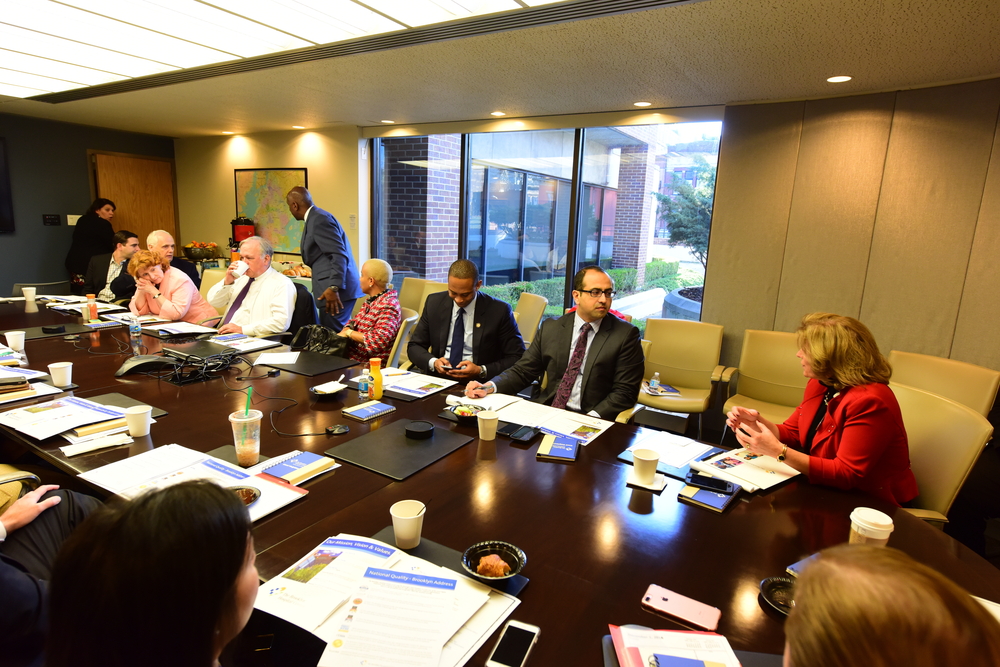The aims
The 2018-19 SE DCS peer challenge was based on a 2017 pilot which was rolled out in 2018.
- The overall aim was to allow the DCS, together with CEx and Lead Member, to improve understanding of how leadership and management processes impact on service quality and service improvement
- It started with a summary self-assessment and a data analysis provided by the SESLIP team
- It assumed that all authorities have improvement needs, and that all authorities have areas of excellence to share across the region
- Authorities were grouped into “triads”, and each group of three attended a challenge day, during which each self-assessment was subject to scrutiny and challenge.
- The outcome of the challenge day was that each authority’s improvement asks and offers are validated and fed into the regional improvement planning process.
The programme promotes:
- Mutual respect, openness and honesty
- Non-judgemental feedback
- The need to diagnose and understand why things are like they are
- A practical focus on how outcomes for young people could be improved
The peer challenge aims to establish:
- Whether each LA’s self assessment is taking into account all possible signatures of risk
- What excellent practice should be shared more widely and;
- Where people are experiencing significant challenges, how can others help .
The process for the 2019 SE DCS peer challenge was as follows:
- Each authority produced a self-assessment, signed off by the DCS, Dec 2018 – Jan 2019.
- Option for the LA to ask SESLIP to resource a review of the self-assessment.
- Peer challenge days were held in February and April 2019, with 3 x 2-hour challenge sessions with breaks and a wrap-up session.
- The days were attended by the 3 x DCS and up to 3 members of their team.
- SESLIP provided a facilitator who also collected and wrote up examples of best practice/ common systemic issues that need to be addressed.
- The aims of the sessions to produce insights, offers and asks.
- A summit meeting was held on 22nd March for DCSs and Lead Members to share and celebrate best pratice, highlight the common issues that may require collective action, discuss any next steps and approve the SESLIP improvment plan and support for 2019-2020.
Anna Wright is available for discussion of any aspect of the programme, annawright@me.com
2018-19 DCS Peer Challenge triad dates
Governance & Reports
SESLIP 2019-2020 Memorandum of Understanding
| Triad | Date | LA1 | LA2 | LA3 |
| 1 | 28th February | Wokingham | East Sussex | Surrey |
| 2 | Postponed | West Sussex | Kent | Portsmouth |
| Quartet 3 | 15th February | Slough | Hampshire and Isle of Wight | Milton Keynes |
| 4 | 15th February | Windsor and Maidenhead | Oxfordshire | Medway |
| 5 | 26th February | West Berkshire | Buckingham-shire | Brighton and Hove |
| 6 | 10th April | Bracknell Forest | Reading | Southampton |

